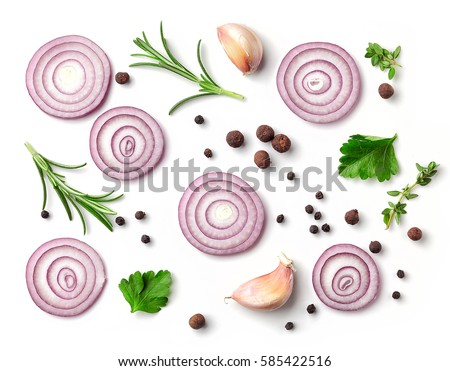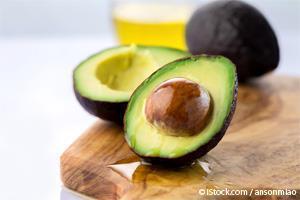Known for their hot flavor, chili peppers (Capsicum annuum) are primarily used for culinary purposes, as a spice added to various dishes and sauces. The chili is a fruit pod of the capsicum pepper plant belonging to the nightshade family (Solanaceae). Cayenne, jalapeno, habanero and serrano peppers are some of the most popular varieties of chili peppers.
Chili peppers were first cultivated by ancient farmers in Central and South America, regions whose cuisines are famous for their piquant flavor. Today, chili peppers are grown all over the world, but Mexico, China, Spain, Nigeria and Turkey are among the largest commercial producers.
Chili pepper contains a bioactive plant compound called capsaicin, which is responsible for its hot and spicy kick. Capsaicin is concentrated in the seeds and white inner membrane; the more capsaicin it contains, the spicier the pepper. Whether eaten fresh, dried or powdered (known as paprika), chili peppers can put fire on your tongue and perhaps even a tear in your eye.
What Makes Chili Peppers Healthy?
Capsaicin offers more than just a pungent oral sensation in your mouth — experts say the endorphin rush it causes makes this chemical compound an effective remedy for pain and other medical conditions.
Dr. Ashwin Mehta, director of integrative medicine at the University of Miami's Miller School of Medicine, said, "It's used for all kinds of arthritis pain, as well as for neuropathic pain and dermatologic conditions that have a painful itch." Aside from pain relief, capsaicin has shown promise in weight loss by helping reduce calorie intake and shrinking fat tissue. Chili also offers these benefits:
• Helps Fight Inflammation — Capsaicin has antioxidant and anti-inflammatory properties, and it has shown potential for treating inflammatory diseases and cancer. In fact, a research published in Future Oncology indicated that it can suppress the growth of human prostate cancer cells.
• Boosts Immunity — Chili peppers are rich in beta-carotene, which is converted to vitamin A in the body. This vitamin is essential for maintaining healthy mucous membranes to help protect the body from invading pathogens (microorganisms that cause disease). Chili is also rich in vitamin C, and this helps the body produce white blood cells that fight germs.
• Helps Reduce Insulin Levels — Another known benefit of eating chili peppers is how they help with blood sugar level management. A study published in the American Journal of Clinical Nutrition concluded that the regular consumption of chili may help reduce risk of hyperinsulinemia (high insulin levels in the blood).
• Protects Your Heart — The compound capsaicin can help reduce triglycerides, cholesterol and platelet aggregation. Some studies have shown that it may assist the body in dissolving fibrin, which prevents the formation of blood clots.Additionally, cultures that use hot peppers regularly in cooking have significantly lower heart attack and stroke rates.
• Prevents Sinusitis and Relieves Congestion — Another health effect of the compound capsaicin is its ability to address nasal congestion by helping clear mucus from your nose. It has antibacterial properties as well, and can help fight chronic sinus infections. Aside from capsaicin, chili also contains other beneficial bioactive plant compounds, including:
Capsanthin. This is the primary carotenoid (antioxidant) in red chili peppers, giving them their red color and typically accounting for up to 50 percent of the spice's antioxidant content.
• Lutein. Most plentiful in immature (green) chili peppers, it has been shown to help maintain and improve eye health.
• Volaxanthin. It is the main carotenoid found in yellow chili peppers, which accounts for 37 to 68 percent of their total content.
• Sinapic acid. Also known as sinapinic acid, this antioxidant is known for its neuroprotective potential.
• Ferulic acid. This compound has shown promise in protecting against diabetes, cancer and cardiovascular diseases.
The Other Uses of Chili
Chili doesn't just offer culinary and health uses; it can also be used for self-defense. Oleoresin capsicum (OC), extracted from red hot chili peppers, is the active ingredient in pepper spray. OC is an inflammatory agent that makes the eyes and mucous membranes of the upper respiratory swell. Pepper spray causes breathing difficulties, runny nose, pain in the eyes and temporary blindness.
The capsaicin in chili can also be used to repel insects and wild animals, which is the reason it is often used as natural pesticide for gardens. If you want to use it to help repel pests, just mix 1 1/2 teaspoons of chili powder in a quart of water and add two drops of liquid dish soap. Take note that some plants are sensitive to chili powder sprays, so you need to test it first on a few leaves.
Article Source: Mercola.com
Chili peppers were first cultivated by ancient farmers in Central and South America, regions whose cuisines are famous for their piquant flavor. Today, chili peppers are grown all over the world, but Mexico, China, Spain, Nigeria and Turkey are among the largest commercial producers.
Chili pepper contains a bioactive plant compound called capsaicin, which is responsible for its hot and spicy kick. Capsaicin is concentrated in the seeds and white inner membrane; the more capsaicin it contains, the spicier the pepper. Whether eaten fresh, dried or powdered (known as paprika), chili peppers can put fire on your tongue and perhaps even a tear in your eye.
What Makes Chili Peppers Healthy?
Capsaicin offers more than just a pungent oral sensation in your mouth — experts say the endorphin rush it causes makes this chemical compound an effective remedy for pain and other medical conditions.
Dr. Ashwin Mehta, director of integrative medicine at the University of Miami's Miller School of Medicine, said, "It's used for all kinds of arthritis pain, as well as for neuropathic pain and dermatologic conditions that have a painful itch." Aside from pain relief, capsaicin has shown promise in weight loss by helping reduce calorie intake and shrinking fat tissue. Chili also offers these benefits:
• Helps Fight Inflammation — Capsaicin has antioxidant and anti-inflammatory properties, and it has shown potential for treating inflammatory diseases and cancer. In fact, a research published in Future Oncology indicated that it can suppress the growth of human prostate cancer cells.
• Boosts Immunity — Chili peppers are rich in beta-carotene, which is converted to vitamin A in the body. This vitamin is essential for maintaining healthy mucous membranes to help protect the body from invading pathogens (microorganisms that cause disease). Chili is also rich in vitamin C, and this helps the body produce white blood cells that fight germs.
• Helps Reduce Insulin Levels — Another known benefit of eating chili peppers is how they help with blood sugar level management. A study published in the American Journal of Clinical Nutrition concluded that the regular consumption of chili may help reduce risk of hyperinsulinemia (high insulin levels in the blood).
• Protects Your Heart — The compound capsaicin can help reduce triglycerides, cholesterol and platelet aggregation. Some studies have shown that it may assist the body in dissolving fibrin, which prevents the formation of blood clots.Additionally, cultures that use hot peppers regularly in cooking have significantly lower heart attack and stroke rates.
• Prevents Sinusitis and Relieves Congestion — Another health effect of the compound capsaicin is its ability to address nasal congestion by helping clear mucus from your nose. It has antibacterial properties as well, and can help fight chronic sinus infections. Aside from capsaicin, chili also contains other beneficial bioactive plant compounds, including:
Capsanthin. This is the primary carotenoid (antioxidant) in red chili peppers, giving them their red color and typically accounting for up to 50 percent of the spice's antioxidant content.
• Lutein. Most plentiful in immature (green) chili peppers, it has been shown to help maintain and improve eye health.
• Volaxanthin. It is the main carotenoid found in yellow chili peppers, which accounts for 37 to 68 percent of their total content.
• Sinapic acid. Also known as sinapinic acid, this antioxidant is known for its neuroprotective potential.
• Ferulic acid. This compound has shown promise in protecting against diabetes, cancer and cardiovascular diseases.
The Other Uses of Chili
Chili doesn't just offer culinary and health uses; it can also be used for self-defense. Oleoresin capsicum (OC), extracted from red hot chili peppers, is the active ingredient in pepper spray. OC is an inflammatory agent that makes the eyes and mucous membranes of the upper respiratory swell. Pepper spray causes breathing difficulties, runny nose, pain in the eyes and temporary blindness.
The capsaicin in chili can also be used to repel insects and wild animals, which is the reason it is often used as natural pesticide for gardens. If you want to use it to help repel pests, just mix 1 1/2 teaspoons of chili powder in a quart of water and add two drops of liquid dish soap. Take note that some plants are sensitive to chili powder sprays, so you need to test it first on a few leaves.
Article Source: Mercola.com







